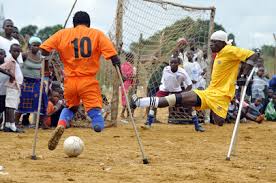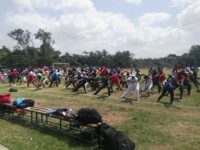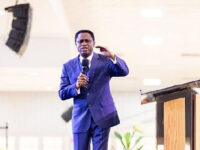 Christian A. Powell is a research fellow at Harvard Medical School and Massachusetts General Hospital. She is the founder of life impact ministries.
Christian A. Powell is a research fellow at Harvard Medical School and Massachusetts General Hospital. She is the founder of life impact ministries.
According to her, one way to meet the needs of people with disabilities, and their families, is to teach a biblical perspective on disability. Many people with special needs along with their families desire to be included in the church but do not know how to proceed. She says we need to make our churches welcome to people with disabilities even as We seek to understand the ethical issues related to disabilities.(1cor 2) .
The bible teaches that each member of the body of Christ is related to other members in such a way that if one part suffers, every part suffers with it; if one part is honored, every part rejoices with it.1cor 12:26.
Jesus taught his disciples how to treat people with disabilities (Luke 14:12-14).
Christians with disabilities along with their family members are able to comfort others with the comfort they have received themselves from God. (2cor 1:4,5).
Ultimately, all believers whether they have a special disability or not, must realize they are all ‘‘jars of clay’’ with imperfections that need not hinder the display of God’s power in their lives. (2cor 4:7).
Pastors can uphold the dignity of people with disability by decrying the unjust and discriminating treatment of persons with disability and putting up church buildings that are disability friendly. They can also do that by speaking against medical actions that deprive disabled people of their lives prematurely.
In the Netherlands, Groningen protocol allows physicians to decide when to administer euthanasia to infants with disabilities. Of the 200,000 children born in the Netherlands each year, about 1000 die during the first year of life. About 600 out of the 1000 deaths of babies during the first year of life are preceded by a medical decision regarding the end of life. One example of a disability for which infants are euthanized in Netherlands is severe spina bifida.The Royal college of obstetricians and gynecology in Britain, is proposing that ‘‘active euthanasia’’ of infants with disabilities be permitted to spare parents the burden of raising such children.
Yet granting doctors the power to make a subjective decision on whether or not a life is worth living changes the very nature of medicine from cure of the patient to a form of social engineering.
Medicine becomes a way to maximize the benefit for society by minimizing the benefit for people born with disabilities.
Allowing mercy killing of infants with a certain disability sends a message to adults with the same disability that their life is worthless than the life of other members of society.
THE NEED TO TRANSLATE ETHICS INTO ACTION
- With the church the ethical stance that upholds the sanctity of human life can be translated into action by creating a welcoming environment fro people with disabilities and their families.
-
A church that teaches that children born with special needs are valuable members of society must be ready to provide care within the church programs for these children.
My research shows that the fourth largest unreached group in the world is people who are deaf. Churches must provide sign language interpretation in their service to make these people understand the world well. -
Beyond making the church physically accessible for people with disabilities, there are many small actions church staff and members can do to make church appealing to a person with disabilities. For example, train church staff and ministry leaders to use a people first language when referring to someone with a disability.
People-first language means the person is primary and the disability is secondary.
A person who uses a wheelchair represents better world choice than the one confined to a wheelchair. -
Welcome a person with a disability with a warm smile and speak directly to him, not his attendant or companion. Do not make assumptions about what activities he can or cannot do.
-
Pastors must train ushers to be sensitive to parents or their children with developmental disabilities during the greeting portion, make sure the person with disabilities is not ignored.
-
A larger church can purchase a wheelchair van to bring people with disabilities to the Sunday worship service, and buy braille Bibles for persons with visual impairment.
Finally a community will be more willing to embrace a new church when the community sees that a church cares for people and desires to meet practical needs. Thus, meeting the needs of people with disabilities within the church can lead to greater opportunities to serve all people within a community and shine the light of the gospel to a secular world.






Having been the CEO of a disability service which cared for and supported those living with intellectual and physical disabilities I can attest to the great value and worth of those afflicted and their families and friends who support and care for them.
Having been in a full time Christian ministry I can also attest to the ways of many Christians who demonstrate love for their neighbour only in as much as it will help them receive the blessing of their own salvation and impress the pastor so they can be included in the pastor’s inner circle.
Having experienced Ghana I have found that churches and pastors are more interested in the love of money rather than true love for their neighbour. Church buildings go up and are extended yet those living with a disability seem not to be of a great interest to the pastors and other church goers. Perhaps it is because they have no money to offer do you think?